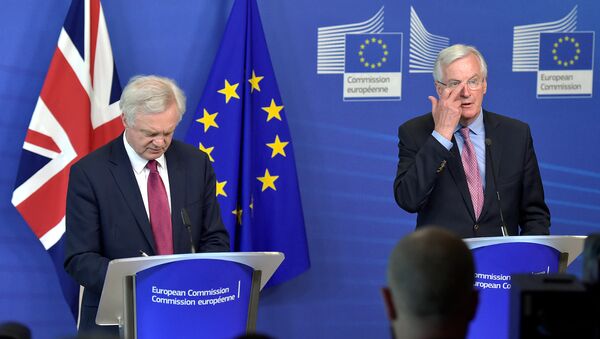"If the Government does not provide a user-friendly, flexible and affordable immigration system for EU nationals post Brexit… significant numbers of employers will be forced to relocate or focus future growth outside the UK," Gerwyn Davies, CIPD labor market adviser, said.
"With the Brexit negotiations starting this week, there is still little clarity on the immigration system that the UK will adopt after Brexit."
Article 50 negotiations just started. #Brexit pic.twitter.com/xxbt5ayrqz
— European Commission (@EU_Commission) 19 June 2017
The report also found that at least a quarter of organizations would be negatively impacted by a restriction on EU migrants to only those who have job offers.
And one in five businesses said that they would target future growth outside the UK or even relocate as a result of the Brexit vote.
Brexit negotiations between the EU and the UK started today. An enormous task. Why is it so complicated? This animation explains why pic.twitter.com/jCm81if1qd
— Netherlands 🇳🇱 MFA (@DutchMFA) 19 June 2017
UK Prime Minister Theresa May has said that the EU referendum vote, which took place in June 2016, was also a vote for Britain to control its borders.
Mrs. May also said that Britain will leave the single market as membership is incompatible with restricting immigration.
#Brexit —Art.50 negotiations begin today. We want maximum level of transparency. Rights of citizens, first priority. https://t.co/NWtdbj35XW pic.twitter.com/LIqx7NDYCM
— European Commission (@EU_Commission) 19 June 2017
The report did warn against the government targeting an arbitrary limit of absolute numbers of migration, such as a pledge to bring immigration into the tens of thousands.
"An overly blinkered approach focused on simply cutting immigration to tens of thousands and focusing only on high skilled employees could leave employers high and dry, especially those who rely on EU migrants to fill low-skilled jobs," David Davies, Secretary of State for Exiting the European Union said.



